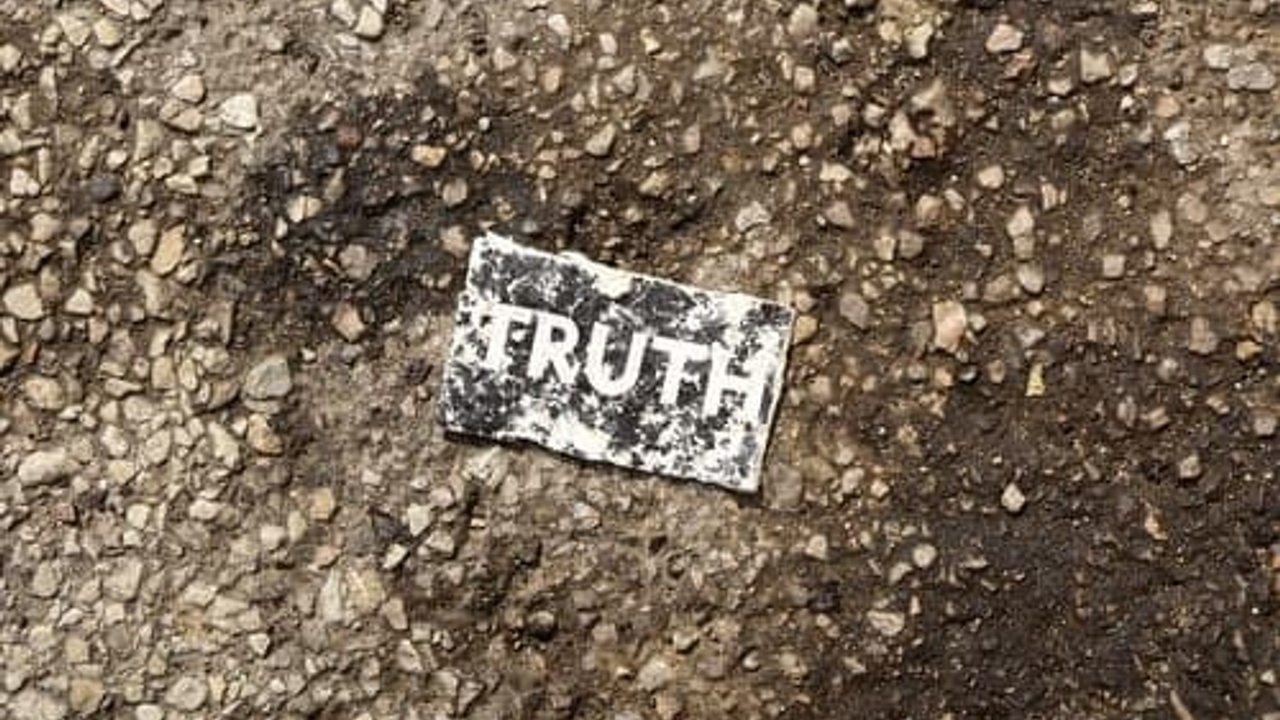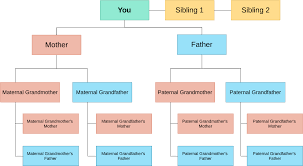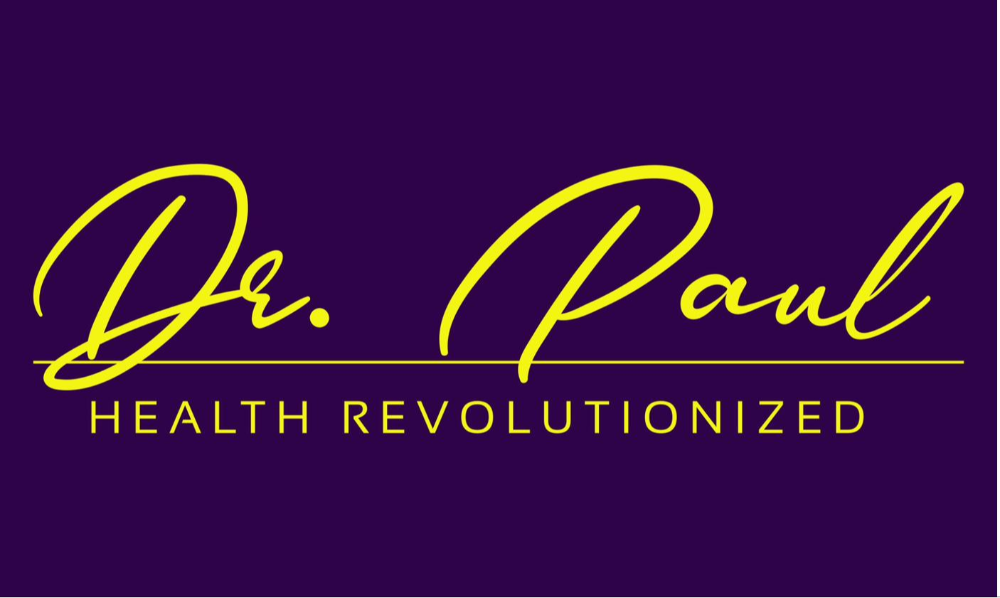What is the Ground Truth of My Health?
Dec 05, 2021
When we consider how our health currently stands and where we hope our health to be in the future, one question that I like to ask is: “What is the ground truth of my health?” In other words, if I look at what evidence I must base the judgement of how my health stands now, do I have any information on which to objectively evaluate my own health? Another way to ask this question is, “Apart from my own opinion of my health or the opinion of others with regard to my health, what data or information or evidence do I have for my current state of health?”
What have I measured lately?
To ask this question, I believe it is important to consider any information that I already have on hand. For example, have I ever weighed myself at home or another location and do I have that weight written down anywhere? Or can I remember my last weight when I stood on a scale? And, when did I measure that weight? Another example could be something as simple as, “When was the last time that I walked for at least 10 minutes straight without stopping?” If I can remember when (and even where) I walked, that is information that contributes to the ground truth of my health.
Health information can be surprisingly simple
Now, it may be that you can’t recall any information about activities or health-related measurements that you have taken. But I think I will be able to show you that even simple information is going to be important contributors to the ground truth for your own health. For example, consider what time you went to sleep last night? Then, take a minute and recall what time you awoke this morning. Then, do some simple math and count the total number of hours you slept last night. That one number, the number of hours that you slept, is very important information that becomes part of the ground truth for your health.
Can we take a new perspective to gain understand our ground truth?
I believe 100% that it is never too late to make our own health a top priority in our lives. You will hear my say this a lot. No matter our age, our income, our job, our living situation, our family situation or where we live, it is never ever too late to start thinking carefully about our own health. I say this because there are many examples of persons who have had tough lives and who have weathered many personal challenges. These persons we will witness and meet in the future. But what we know is that boys and girls, men and women of all ages can be incredibly resilient. So, when we step back and look at our own lives, we may feel like it is too much, too hard to look at where our health is now. It may seem too scary and too difficult to face where we have been and where we feel our health is now. Right?
Can I be kind and patient to understand my own ground truth?
So, if we want to take steps toward a real understanding of our own ground truth for our health, then I think first we must be patient and kind to ourselves. The fact that you are here now, reading this and considering even the notion of understanding your own health is a big step. Because, as you have seen around you, there are literally millions of examples of women and men of all ages, races and ethnicities that do not seek to understand their ground truth for their own health. You need not look far for these individuals. But, as you may have seen, one day, these men and women awake and come to the realization that their health has deteriorated or declined to the point of no return. They have disregarded, ignored or “been too busy” to step back even for a few minutes, and consider where their health is.
Can a few minutes now give you additional years down the road?
You will probably hear me say many times that your journey to your best health begins with a few steps and minutes. And there are SO many ways to begin that there is no single best answer. In fact, I am a believer that a good way to begin is to consider the easy things first. As we move forward in the journey to your best health, there are many side streets we will walk together. And, my goal is to make sure that we take small groups of steps together so that these steps don’t take a lot of time. But, when added up over days, weeks, months and years, you will have found your ground truth for your own health that informs your best path forward.
Can you think back to your childhood?
Let’s look back in time for a couple of minutes. Just close your eyes and transport yourself back to when you were five or six years old. Maybe you can recall when you were in preschool or kindergarten? Do you remember going to the doctor? Do you remember having any shots (vaccinations) from a doctor or at school? Do you remember any time you had an accident where you went to the hospital or emergency room? Now, with your eyes closed, think about when you were 10, 11 or 12 years old. That is around the fifth, sixth or seventh grade. Do you remember around that time ever being sick and having to stay out of school due to illness? Any time with the flu? Any accidents or times you were in the hospital? Now, with a pen or pencil with paper, just write down the events you remember (e.g., illness, shots, hospital visit) and your approximate age at the time of each event.
Can you consider yourself as a teenager?
Let’s try the same exercise: paper/pen at the ready, eyes closed. Now imagine back to your teenage years. Middle school or junior high school. Then, think of your high school years. How did you feel then? Were you happy or sad, relaxed or stressed? Were you active or not so active? What did you eat for breakfast, lunch and dinner? Ask yourself, “When did I go to bed and when did I wake up? Did I ever record my weight in those years and what was my weight? How many close friends did I have? Did I have to see any doctors? Did I go for any shots or vaccines? Was I ever in the hospital or did I ever have to visit a clinic or emergency department for any illness or accident?” For those years, 13 to 18 years-old, write down as many health events, illnesses, accidents as you can remember. Remember, be patient with yourself in remembering these years. It may have been some time ago. With your eyes closed, transport yourself one more time to your teenage years. Ask yourself, what was my health like in those years? Now, open your eyes, and write down any additional health events, health problems or challenges you experienced and any reasons you went to see a doctor or visited an emergency room or were admitted to the hospital.
How about my health during my young adult years, ages 20—29?
Now if you are in your middle or older years, take another step back in time. Go back to your twenties—you remember those years, right? Where were you? Were you working and if so, where did you work and what kind of jobs did you have? Were you in school and if yes, what years were you in school? During those years, think of where you lived and with whom you lived? Think of any relationships you had and how many relationships you experienced. What food did you eat in your twenties? What did you drink—alcohol or otherwise? Did I use any drugs, legal or not? Remember, what you are gathering is information for yourself. This is really for yourself, to teach yourself and to learn from yourself. It’s not for anyone else right now. Now, close your eyes and transport yourself back to your twenties. What health events do you remember? Any doctor visits? Emergency room visits? Hospitalizations? Accidents? Broken bones? Surgeries? Anything you recall from those years, write it down. Then, for each event or circumstance, write down your age or approximate age or year that each happened. If you don’t remember the exact age or year that is OK. Just write down the approximate age or year that each event occurred.
What more can we gain from this historical review?
This is a great question. So, there is more. And, in the spirit of keeping things simple, I am going to ask you to write down a very simple family tree. Start your family tree by writing down your parents or guardians that raised you. If you were adopted and you’re not sure who your birth parents are, that’s OK. For now, you can write down as much as you know about your parents, grandparents and siblings. Begin your family tree but drawing two circles side-by-side: one for your mother and one for your father. If you have one parent, write down one circle. In this tree, draw a line to connect your parents if there are two. Then, draw a line downward to a second horizontal line. Below this horizontal line, draw a circle representing yourself (see the orange circle). Next to the circle representing yourself, draw any brothers or sisters you have. A simple family tree might look like the following picture. In this picture, you will notice squares and circles. In conventional family trees, circles represent females and squares represent males. This family tree shows two parents, one female and one male. It also shows three siblings: one male and two females.
What can I do with my family tree now?
With your family tree drawn on paper, now begin to reflect on your childhood growing up. Then, consider your parents and siblings health over their lifetime thus far. Next to each person in your family tree, begin to list as many health challenges, illnesses, conditions, surgeries, hospitalizations as you can remember. Don’t worry if this is not perfect. In fact, once you start thinking about your parents and siblings, you may come to realize that you know very little about their health. That is OK. You need not worry if you know very little about your parents or sibling’s health. Over time, we will build up this tree and gradually, you will develop a more complete picture of their health. For those conditions you can remember, write them down next to each person. And, after some thought, if you know the approximate year or age when they experienced a health event or when an illness started, you can write down that age or year. It is OK if you don’t know the age or year when an illness started, or event occurred. Just writing down any health events or illness you know of will be helpful.
How will all of this help me?
When we think of our health journey up to this point, looking back in time provides us with a certain perspective of where we have been. Of course, we can’t change the past. And, that’s OK. Because we use the history you have created, to provide some help in guiding our future. It’s been said that those who forget the past are doomed to repeat it. If there is a grain of truth to this phrase, then any information you can recall from your own past as well as the past/present health of your parents and siblings can provide an important starting point. Your family history provides a snapshot of your overall family health. At this point, it’s very important to know that your family health history does not predict your future health. It can, however, give us some hints of things to look for going forward. You will use your family history as a set of clues. Clues to unlock the best pathway for your health journey going forward.
Why am I scared?
When you start to take this retrospective look (looking back in time) at your health and the health of any relatives, it may start to feel scary. Why is this? Well, it may happen for a couple reasons. First, when you start to think back in time to your earlier years, you may feel like you were not living a healthy life. My answer to this is simple: please try not to worry. Remember, we are building your story. We are building your ground truth. None of us have lived a life of perfect health. I mean no one. The second reason that this look back over our family health can be scary is that we start to see patterns. We may find, for example, that more than one our relatives died of a form of cancer or heart disease at a young age. Such patterns may become more apparent as we build out our family tree to our grandparents, aunts or uncles. If you find this scary, you are not alone. That is completely OK and natural. But I will also say that, armed with this new knowledge, we are building a very powerful new ground truth. This new ground truth will the basis for a new health journey and action plan for the rest of your life. That’s why you are here. We will do this together.
